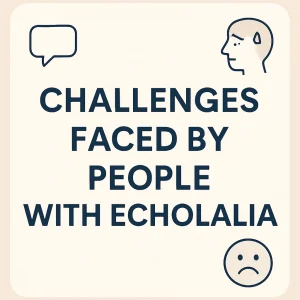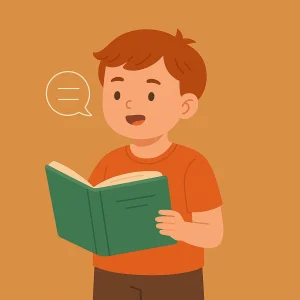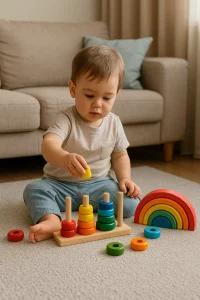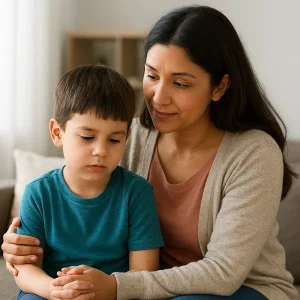Why isn’t My 1-Year-Old Talking Yet? What Can I Do to Help?
By Rajini D
Last Updated: April 24, 2025
It can be a little unsettling when your 1-year-old isn’t saying much — especially if other kids the same age are starting to babble. If you’re concerned about speech delay in your 1-year-old, you’re not alone — and you’re not doing anything wrong.
Every child develops at their own pace, and it’s completely natural to feel concerned when speech doesn’t seem to be coming as quickly as expected. Many parents ask the same questions you are — and there are answers. In fact, early speech and language development can vary quite a bit, and knowing what’s typical (and what’s not) can really help you feel more confident.
Read More: Speech Development Milestones: Your Child’s Talking Journey
Speech and Communication Milestones at 12–18 Months
Wondering what’s “normal” for your 1-year-old when it comes to speech? You’re not alone — many parents ask the same question. While every child grows at their own pace, there are a few common speech and language milestones that most toddlers hit between 12 and 18 months.
At this age, you may start to notice small but meaningful changes in how your child communicates. These early signs often lay the foundation for future language skills.
Common Communication Milestones
Here’s what you can generally expect during this stage:
| Skill | What It Might Look Like |
|---|---|
| Using simple words | Says “mama,” “dada,” “ball,” or other familiar words |
| Responding to name | Turns or looks at you when you call their name |
| Using gestures | Waves “bye-bye,” points to ask for things, or shakes head |
| Following simple commands | Understands “Come here,” “Give me,” or “No” |
| Imitating sounds | Tries to mimic your voice, animal sounds, or babbles along |
| Recognizing objects/pictures | Points to or looks at pictures in books when named |
Tip: If your child is doing some — but not all — of these things, that’s okay. Development happens in stages, and some kids need a bit more time.
Red Flags That May Indicate a Delay
As your child grows, it’s natural to keep an eye on their speech and communication progress. And while there’s a wide range of what’s considered “normal,” there are also a few signs that may suggest your child could use some extra support.
If your 1-year-old isn’t meeting certain early milestones, it doesn’t necessarily mean something is wrong — but it does mean it might be time to take a closer look.
Signs to Watch For
Here are a few communication red flags to be aware of between 12 and 18 months:
| Possible Concern | What You Might Notice |
|---|---|
| Lack of babbling | Doesn’t make sounds like “ba-ba” or “da-da” |
| No response to their name | Doesn’t turn, look, or react when you call their name |
| Not using gestures | Doesn’t wave, point, or use hands to communicate needs |
| No spoken words by 16 months | Still hasn’t said a clear word like “mama” or “ball” |
| Limited eye contact or social interaction | Rarely looks at you or engages socially |
Gentle reminder: Every child develops at their own pace, but noticing these signs early can help guide the right support.
Read More: How to Identify and Help Your Child Overcome Speech Delays
How You Can Support Speech Development at Home
If you’re wondering how to help your 1-year-old start talking, you’re already on the right track. You don’t need to be a speech therapist to make a difference — your everyday routines are full of chances to build communication. The key is consistency, patience, and turning simple interactions into learning moments.
Here are a few easy things you can start doing today:
Simple Ways to Encourage Talking
- Talk throughout the day
Narrate what you’re doing as you go about your day. For example, “Let’s wash your hands,” or “Now I’m cutting your fruit.” Hearing these words repeatedly helps your child connect sounds with actions. - Read picture books together
Choose colorful books with simple images. Point to each object and say its name: “Look, a dog! Woof woof!” Pause to give your child a chance to react or imitate sounds. - Use gestures while talking
Non-verbal cues like waving “bye-bye,” clapping, or pointing help your child understand communication goes beyond just words. Always pair gestures with spoken language. - Encourage imitation
Make silly sounds or play games like peekaboo. Children learn by copying, and games like these encourage both social interaction and vocal practice. - Name emotions
If your child looks upset, say, “You’re feeling sad,” or when they’re excited, “You’re so happy!” Labeling emotions helps them understand and express feelings through words over time.
Lear More: Daily Routines to Enhance Your Child’s Language Development
Every Child Is Unique — Early Action Builds Confidence
If your child isn’t talking yet, it’s easy to feel uncertain or even a little overwhelmed. But here’s something important to remember: speech and language develop at different speeds for every child. Just because your child isn’t saying words yet doesn’t mean something is wrong — but it also doesn’t hurt to check in.
Some kids start chatting early, while others take more time. What matters most is recognizing the signs, trusting your instincts, and taking gentle action when needed. Seeking guidance early on isn’t about being anxious — it’s about being proactive and prepared.
Here’s what we want you to know:
- Every child’s path is different
Comparing your child to others may only add pressure. Focus on their unique journey. - Asking for help is a strength
Getting support early can open the door to simple strategies that make a big difference. - You know your child best
If something feels “off” to you, it’s worth exploring — your instincts matter.
Conclusion
Not sure if your 1-year-old’s speech delay needs attention? That’s completely okay. At Wellness Hub, we’re here to support you with easy first steps. You can book a free online consultation with a licensed speech therapist, get our 12–18 month development checklist, or try our quick BASICS by Wellness Hub – available on Android and iOS to check your child’s speech milestones. It’s all free, simple, and designed for busy parents. There’s no pressure — just expert advice and real support. If you’re curious about how therapy works, explore our online speech therapy programs for more information.
Frequently Asked Questions:
1. Is it normal if my 1-year-old isn’t talking yet?
Yes, it can be normal. Some 1-year-olds are just starting to say their first words. But if your child isn’t babbling, using gestures, or trying to communicate at all, it’s a good idea to monitor their development and talk to a speech therapist.
2. What should my 1-year-old be saying?
By 12 to 18 months, most toddlers say 1–3 simple words like “mama,” “dada,” or “ball.” They may also try to copy sounds, respond to their name, and follow basic instructions like “come here.”
3. When should I worry about speech delay in a 1-year-old?
You should be concerned if your 1-year-old doesn’t babble, doesn’t respond to their name, doesn’t point or wave, or has no spoken words by 16 months. These may be signs of a speech or language delay.
4. Can speech delay be a sign of autism
Yes, in some cases. While not all children with speech delay have autism, delayed speech, lack of eye contact, and not using gestures can be early signs. Tools like the BASICS app by Wellness Hub can help you check early signs of speech and social delays.
5. What causes speech delay in toddler?
Speech delay can happen for many reasons, including hearing issues, developmental delays, or lack of interaction. Sometimes, it’s simply a matter of needing more time or support to develop speech skills.
6. How can I help my 1-year-old talk more at home?
Talk to your child often, read picture books, use gestures, label emotions, and play imitation games like peekaboo. Simple daily activities help build speech naturally.
7. Should I wait or get help now for speech delay?
Don’t wait too long. Early help is always better. You can start by trying our free BASICS screener or book a free consultation to speak with a licensed speech therapist.
8. Does screen time delay speech in toddlers?
Too much screen time, especially without interaction, can affect speech development. Experts recommend more talking, playing, and reading — and less screen time for children under 2.
9. What is the difference between a late talker and a speech delay?
A late talker may start speaking later but catches up without therapy. A speech delay may include trouble understanding, using words, or interacting — and may need professional help.
10. Can online speech therapy really help my toddler?
Yes! Online therapy from trained professionals works well for toddlers, especially when parents are involved. It’s flexible, affordable, and available from your home. Learn more about online speech therapy for toddlers here.
About the Author:
Rajini Darugupally
M.Sc., Speech-Language Pathologist (9+ years of experience)
Rajini is a passionate and dedicated Speech-Language Pathologist with over 9+ years of experience, specializing in both developmental speech and language disorders in children and rehabilitation in adults. Driven by a desire to empower each individual to find their voice, Rajini brings a wealth of experience and a warm, genuine approach to therapy. Currently, at Wellness Hub, she thrives in a team environment that values innovation, compassion, and achieving results for their clients.
Book your Free Consultation Today
Parent/Caregiver Info:
Client’s Details:
* Error Message








